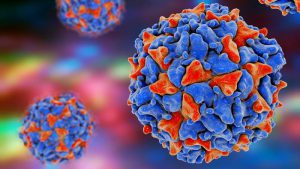Who is at risk
Immunocompromised people, including those on medications and chemotherapy that impacts antibody production, are at a heightened risk.
Because polio is spread via fecal-oral transmission, frequent handwashing can help prevent the spread of poliovirus, Hoy said.
Other than regular hand washing and getting vaccinated, Hoy says there are no specific precautions that immunocompromised people should take at this time.
Loved ones of at-risk groups should ensure they are up to date with their polio vaccinations and ensure their children are on schedule for their childhood vaccinations, which includes the polio shot.
Dr. Monica Gandhi, MPH, professor of medicine at the University of California, San Francisco, said the polio vaccine is very effective at preventing illness.
“We know that the initial polio vaccine protects individuals from severe disease for a long time, possibly a lifetime although individuals vary,” Gandhi said.
“The only people who need to worry are those who are unvaccinated because vaccines are extremely protective against the severe forms of polio, like the vaccines with COVID. Children are most at risk of paralytic polio so it is imperative to catch up to childhood vaccines as there were setbacks during COVID-19.”
Gandhi noted that while vaccines prevent disease, they may not always prevent all spread, as with the COVID-19 vaccine.
“However, unlike with COVID-19, since we usually only screen for polio if someone has symptoms, we know very clearly that vaccination does prevent the development of polio symptoms,” Gandhi added.
